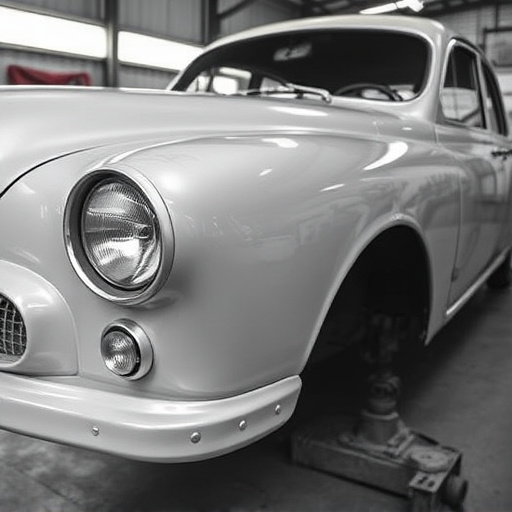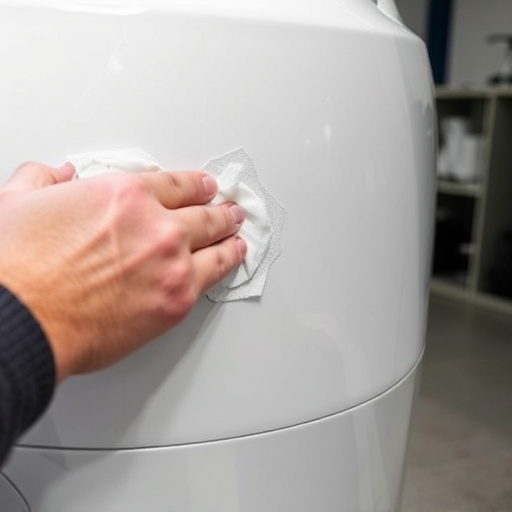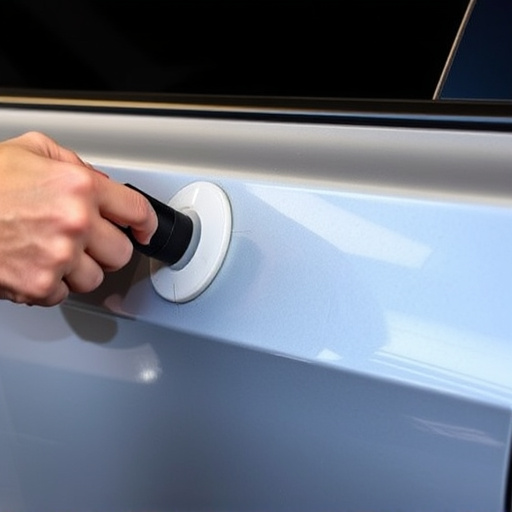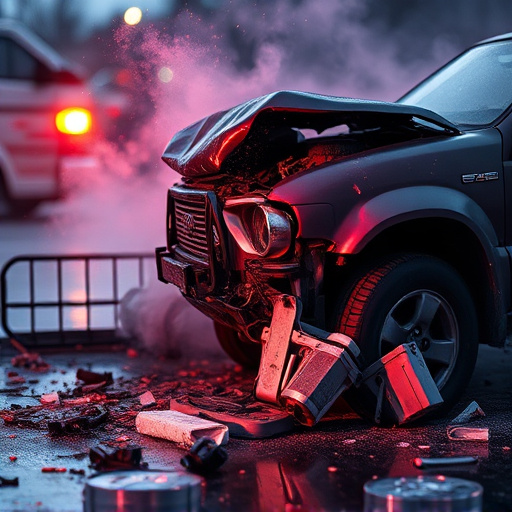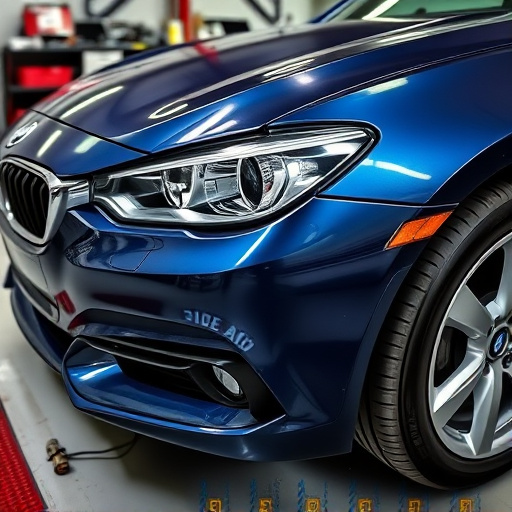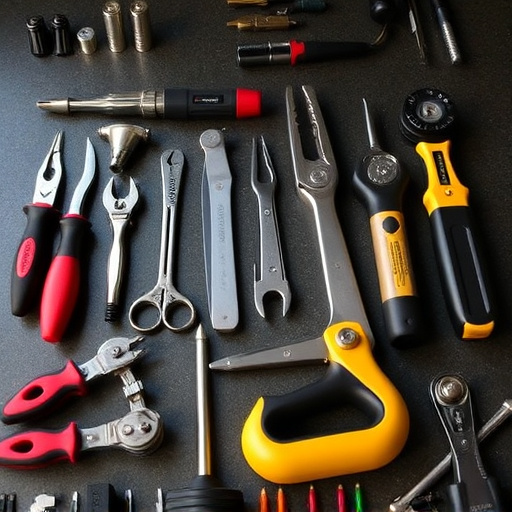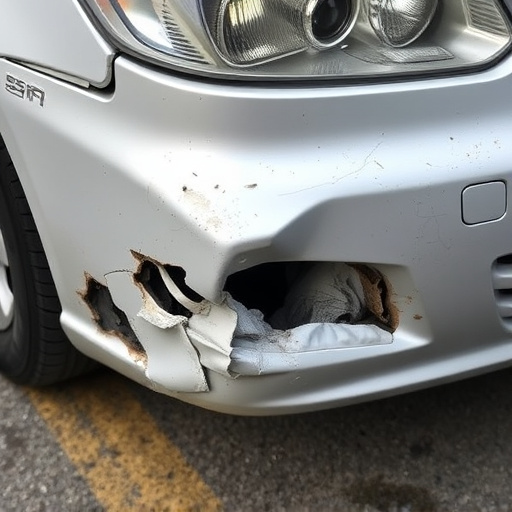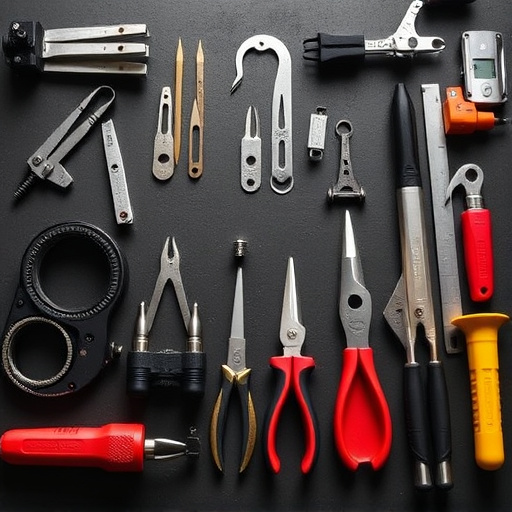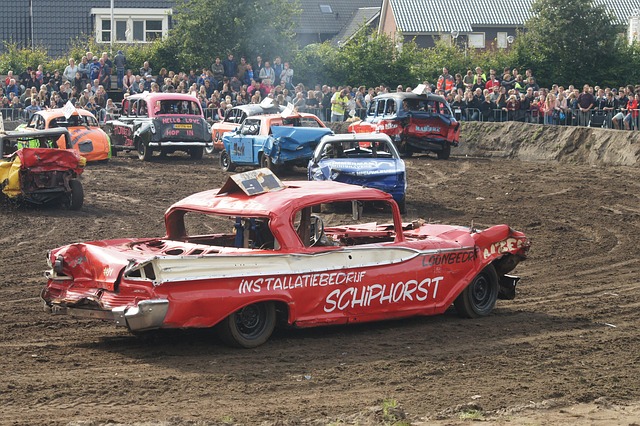A certified auto body shop differentiates itself through stringent industry standards focusing on safety, environmental compliance, skilled professionals, and modern equipment. This ensures superior repair services, builds customer trust, and stands out in a competitive market. Key practices include advanced techniques like paintless dent repair (PDR), adherence to manufacturer guidelines, robust quality control, efficient inventory management, authentic parts sourcing, and maintaining a clean workspace.
In today’s competitive automotive industry, consumers demand top-tier repairs from trusted sources. A certified auto body shop distinguishes itself by adhering to stringent industry standards, ensuring superior quality and customer satisfaction. This article delves into the crucial aspects of certifying auto body shops, including understanding broad industry benchmarks and the transformative role certification plays in upholding excellence. We explore best practices for certified shops to maintain their high standards, empowering consumers to make informed choices.
- Understanding Industry Standards for Auto Body Shops
- The Role of Certification in Ensuring Quality Repairs
- Best Practices for Certified Shops to Maintain High Standards
Understanding Industry Standards for Auto Body Shops
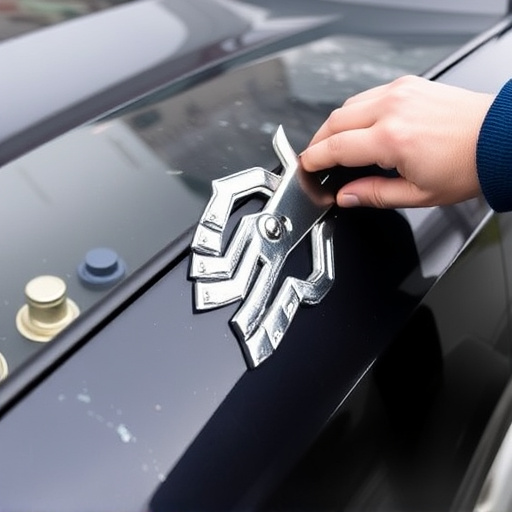
In the competitive automotive industry, a certified auto body shop stands out by adhering to stringent industry standards. These standards encompass a wide range of factors, from safety protocols and environmental compliance to skill proficiency and equipment quality. For instance, a reputable car body shop must employ trained professionals capable of handling complex repairs and restoration tasks with precision. This involves advanced training in techniques like panel replacement, structural repair, and paint technology, ensuring each vehicle undergoes meticulous attention to detail.
Moreover, the shop’s facilities should be equipped with state-of-the-art tools and machinery to perform precise measurements, accurate welding, and high-quality finishes. Additionally, they must follow strict environmental guidelines for waste management, especially in handling hazardous materials commonly found in car collision repairs. These standards not only guarantee superior repair services but also foster trust among customers, ensuring their vehicles are in safe and capable hands.
The Role of Certification in Ensuring Quality Repairs
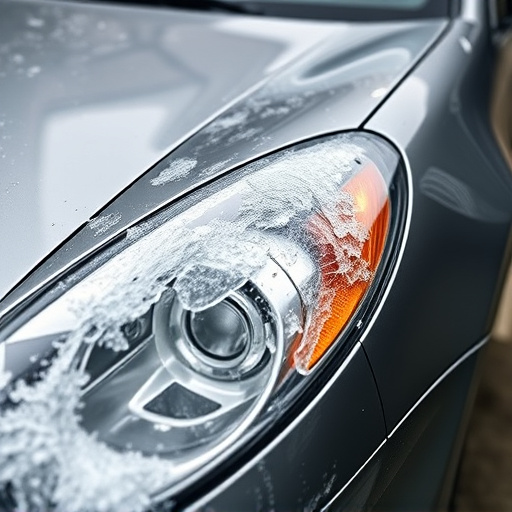
In the competitive landscape of auto repair services, a certified auto body shop stands out for its commitment to quality and safety standards. Certification is a crucial process that validates a shop’s competence in various aspects of vehicle restoration, including frame straightening and collision repair. It ensures that the technicians possess the necessary skills and knowledge to handle complex repairs accurately, adhering to industry-recognized protocols. This level of expertise translates into superior craftsmanship, minimizing the risk of further damage or structural issues post-repair.
When selecting a collision repair shop, looking for certification from reputable bodies is essential. Certification programs often include rigorous training in advanced techniques, safety procedures, and the use of modern equipment. A certified auto body shop not only guarantees high-quality repairs but also maintains consistency in its services. This ensures that every customer receives the same level of professionalism and precision, fostering trust and satisfaction, which are paramount in the auto repair industry.
Best Practices for Certified Shops to Maintain High Standards
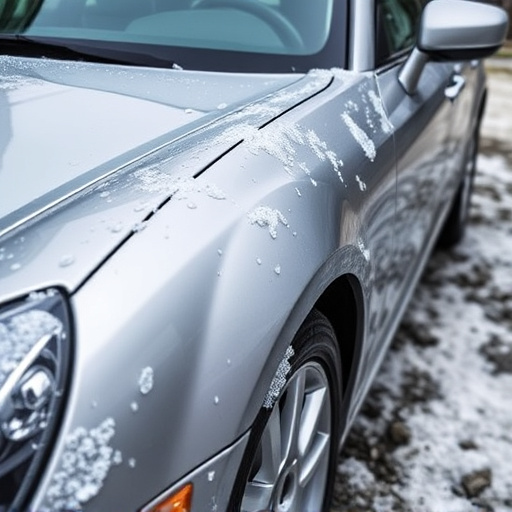
A certified auto body shop must adhere to stringent industry standards to maintain its reputation and ensure customer satisfaction. Best practices include regular staff training on the latest techniques and technologies, such as paintless dent repair (PDR), which minimizes repainting and saves time and costs. Additionally, keeping up-to-date with manufacturer guidelines, especially for high-end brands like Mercedes Benz collision repair, is paramount to preserving original equipment manufacturer (OEM) standards.
Shops should also implement robust quality control measures throughout the repair process, from initial assessment to final inspection. Efficient inventory management and access to authentic parts are crucial, particularly for fleet repair services, where timely turnaround is critical for businesses relying on their vehicle fleets. Furthermore, maintaining a clean, organized workspace not only ensures safety but also contributes to consistent, high-quality outcomes in every job handled by the certified auto body shop.
A certified auto body shop is more than just a place to fix your vehicle; it’s a facility that upholds industry standards, ensuring quality repairs. Through certification and best practices, these shops demonstrate their commitment to excellence, providing peace of mind to customers like you. When choosing auto body repair services, look for certified professionals who prioritize maintaining high standards – it’s the best way to guarantee your vehicle is restored to its pre-accident condition.
